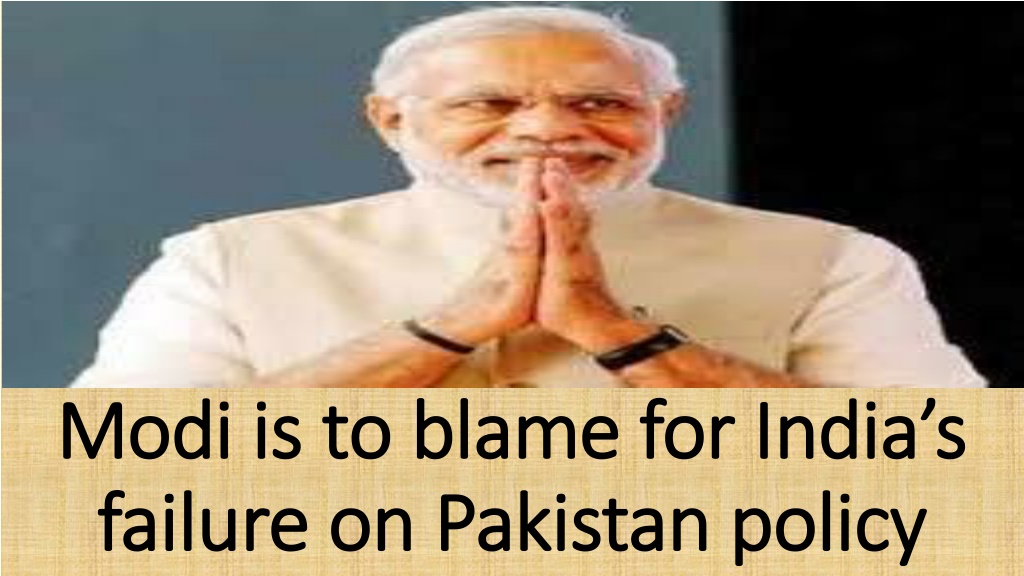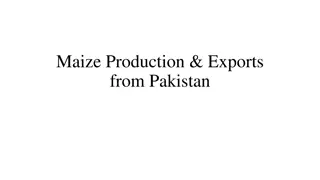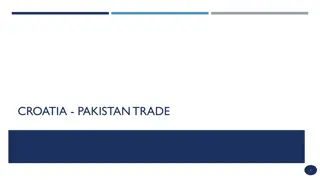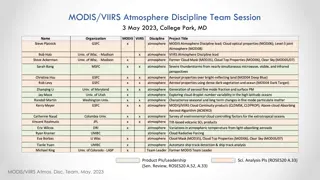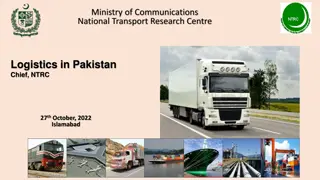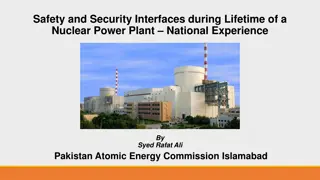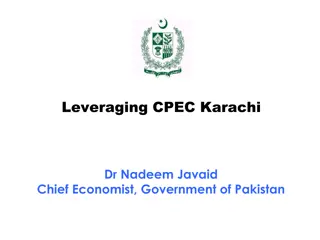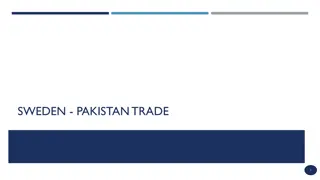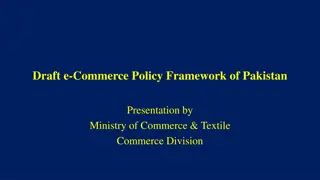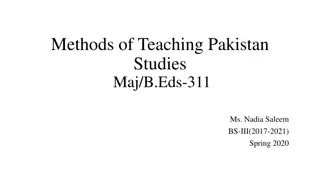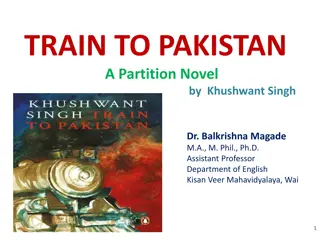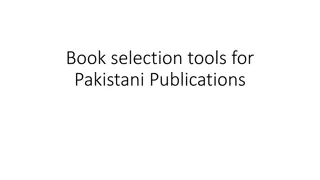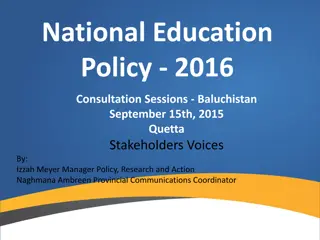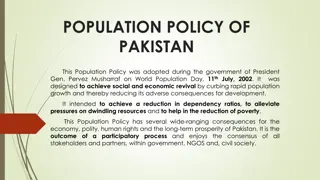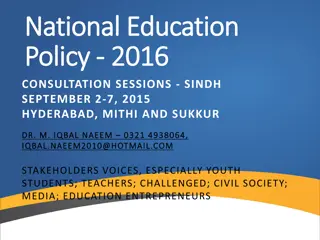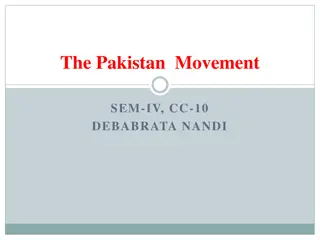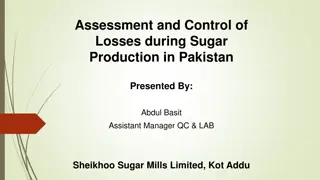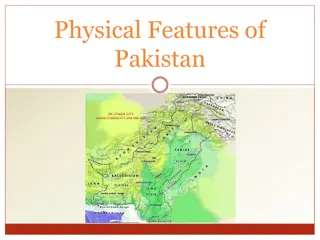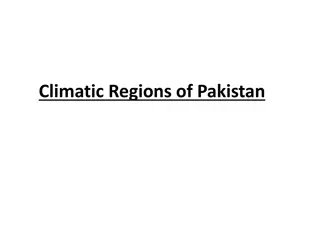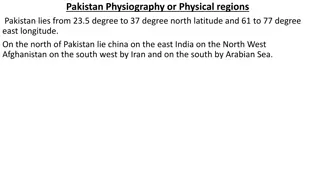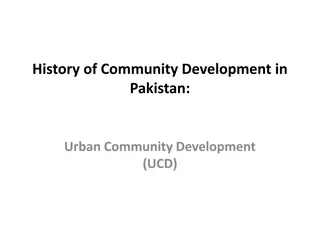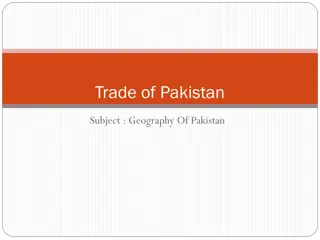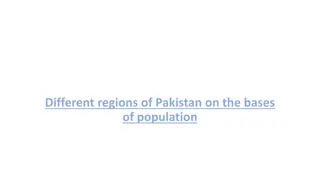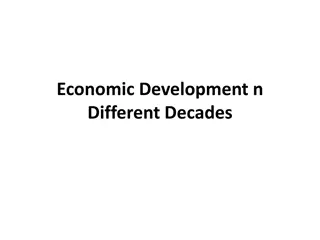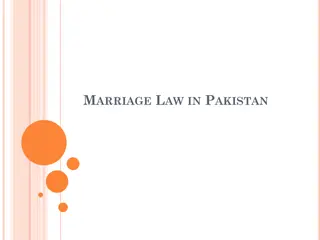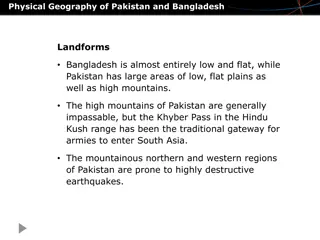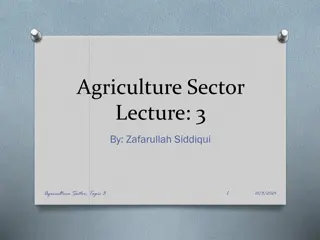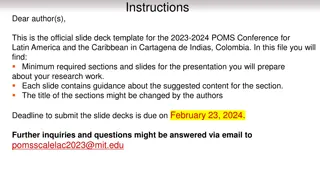Analysis of India's Pakistan Policy Shift under Modi's Leadership
The article discusses the shift in India's Pakistan policy under Prime Minister Narendra Modi's leadership, highlighting the contrast with previous administrations, especially Atal Bihari Vajpayee's more flexible approach. It delves into the Kashmir dispute, Modi's rigid stance, and Pakistan's perspective on bilateral talks regarding the region.
Download Presentation

Please find below an Image/Link to download the presentation.
The content on the website is provided AS IS for your information and personal use only. It may not be sold, licensed, or shared on other websites without obtaining consent from the author. Download presentation by click this link. If you encounter any issues during the download, it is possible that the publisher has removed the file from their server.
E N D
Presentation Transcript
Modi is to blame for India Modi is to blame for India s s failure on Pakistan policy failure on Pakistan policy
A striking feature of the Indian A striking feature of the Indian government headed by Prime government headed by Prime Minister Narendra Modi, which Minister Narendra Modi, which assumed office in New Delhi in May assumed office in New Delhi in May 2014 2014, was its abandonment of the , was its abandonment of the flexible Pakistan policy pursued by flexible Pakistan policy pursued by previous Prime Ministers Atal previous Prime Ministers Atal Behari Vajpayee ( Vajpayee (1998 1998- -2004 successor Manmohan Singh ( successor Manmohan Singh (2004 2014 2014). ). Behari 2004) and his ) and his 2004- -
Kashmir has been at the heart of the Kashmir has been at the heart of the dispute between India and Pakistan dispute between India and Pakistan over decades and Vajpayee attempted over decades and Vajpayee attempted to resolve the issue by initiating to resolve the issue by initiating dialogue with Pakistan Prime Minister dialogue with Pakistan Prime Minister Nawaz Sharif and later with President Nawaz Sharif and later with President Parvez Musharraf. Parvez Musharraf.
Unlike Vajpayee, Modi was rigid and hawkish. According to him, Pakistan is illegally occupying parts of India in Jammu and Kashmir and they should vacate those areas for better relations to prevail between the two countries. For him, Kashmir is an integral and inseparable part of India, not subject to bilateral discussions.
Pakistan, on the other hand, Pakistan, on the other hand, views Kashmir as a disputed views Kashmir as a disputed territory and insists that its territory and insists that its future should dominate future should dominate bilateral talks. bilateral talks.
After becoming prime minister, Modi met with Nawaz Sharif in May 2014. However, the foreign secretary-level talks scheduled for August 2014 was called off after Pakistan High Commissioner to India Abdul Basit met with separatist Hurriyat leaders whom India does not regard as stakeholders in the Kashmir dispute.
Prime Minister Narendra Modi must revise his Pakistan policy linked to Kashmir. Together with his advisors, he needs to restore optimal relations with Pakistan besides reviving the peace process in the Kashmir Valley.
Related Terms Related Terms ) ( (APHC) All Parties Hurriyat Conference: exchanging artillery fire ) ( : / / call the shots: to be in charge, to be the boss: lasting peace :
